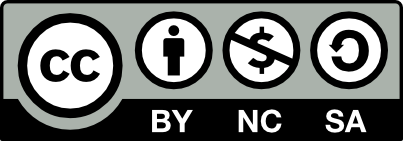Determining the future direction of Curriculum reform process at a Public-Sector University in Saudi Arabia.
Main Article Content
Abstract
Introduction: Educational institutions have recognised the importance of evaluating academic curricula to keep up with dynamic changes in the field of medical education. The college of medicine at King Khalid University has acknowledged this trend and embarked on reviewing its curriculum.
Objectives: To evaluate the undergraduate medical curriculum using SPICES model of curriculum evaluation as a tool with the view to plan and shape future curriculum reforms at the college of medicine, King Khalid University.
Methodology: A questionnaire-based survey was conducted eliciting the responses of faculty members and the departmental chairmen regarding the practice of student centred, integrated and non-traditional teaching methods as well as a separate questionnaire for the quality of problem-based learning in practice. The compiled responses from all the respective departments were statistically analysed subsequently.
Results: An average of 43.5% of student-centred learning (SCL), 41% of Integrated teaching (IT) and 19% of Non-traditional teaching (NTT) is being employed in different departments of the college of medicine.
Conclusion: The results suggest that the college of medicine is currently carrying out traditional teacher centred, discipline based and information-oriented teaching along with small chunks of student centred, integrated and problem-based teaching methods. Although the problem-based learning is proportionately very small in practice but in general, its quality is better in the clinical departments as compared to the basic sciences departments.
Key words: Curriculum evaluation, curriculum review, medical education, educational strategies
Downloads
Article Details
Journal of Muhammad Medical College (J Muhammad Med Coll) belief that all researches are basically conducted for the benefit of humanity. Research is the product of an investment by society and consequently its fruits should be returned in a transparent fashion to all humankind without any discrimination.
Journal of Muhammad Medical College is an open access journal which means that all content is freely available without charge to users or / institution. When used non-commercially all users are allowed to read, download, copy, distribute, print, search, or link to full text articles in this journal without asking prior permission from the publisher or author as long as original author(s) are acknowledged.
Journal of Muhammad Medical College operate under Creative Common License CC-BY-SA that allow reproduction of articles free of charge, for non-commercial use only and with the appropriate citation information. All authors publishing with Journal of Muhammad Medical College accept these as the terms of publication.

This work is licensed under a Creative Commons Attribution-NonCommercial-ShareAlike 4.0 International License